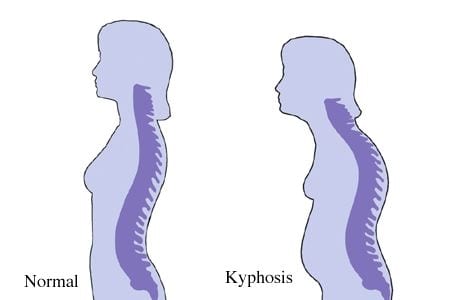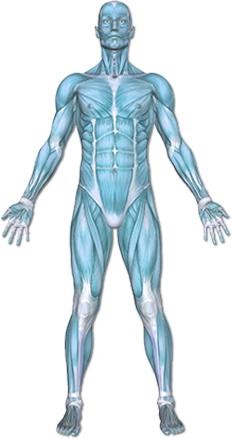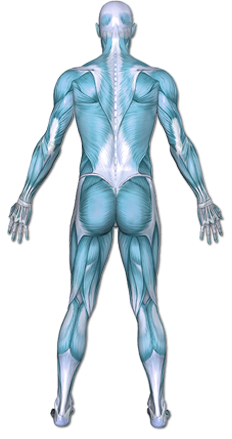Hyperkyphosis
Kyphosis is a normal rounding curve that is seen in the upper back. Hyperkyphosis, or hunchback, occurs when the angle of the outward curve is exaggerated. The sooner hyperkyphosis is treated, the better the outcome.


Copyright © Nucleus Medical Media, Inc.
This content was created using EBSCO’s Health Library
Three main types of hyperkyphosis and their causes include:
- Postural — the most common abnormal type caused by bad posture
- Congenital — present at birth, frequently with abnormalities of the vertebral bodies
- Scheuermann’s — genetic, but appears during the teenage years
Other causes of hyperkyphosis are unknown.
This content was created using EBSCO’s Health Library
Factors that may increase your chances of hyperkyphosis include:
- Bad posture
- Arthritis
- Vertebral fractures
- Trauma to the spine
- Osteoporosis
- Spine infection
- Certain diseases, such as Marfan syndrome or cerebral palsy
This content was created using EBSCO’s Health Library
Hyperkyphosis may cause:
- Back pain or stiffness
- Intense fatigue
- Exaggerated rounding of the shoulders
- Forward-bending head in comparison to the rest of the body
- Differences in shoulder height
This content was created using EBSCO’s Health Library
Most cases of hyperkyphosis can be diagnosed during a physical exam. Some cases are found by a school nurse during a scoliosis check. Your doctor will ask about your symptoms and medical history. A physical exam will be done to look for abnormal curve in the spine, rounded shoulders, and a hump on the back. Some tests may be done to rule out or confirm other conditions that may be causing hyperkyphosis. Your doctor may recommend imaging tests to see the spinal curve and the structures around it. These may include:
- X-ray
- MRI scan
- CT scan
Your doctor may need to measure how well you breathe if the curve is severe enough. This can be done with pulmonary function tests.
This content was created using EBSCO’s Health Library
Your therapist will educate you on pain-relieving techniques, such as ice and decreasing or modifying painful activities. This diagnosis often occurs from muscular tightness or weakness which causes posture to get out of alignment. Years of activity with poor posture can lead to damage to the structures of the spine. Your therapist will educate and assist you on proper stretching and strengthening exercises for the back. They may need to perform hands on, manual therapy techniques to further increase your joint flexibility. The final phase of rehab will involve strengthening during functional activities and education to prevent the injury from occurring again.
This content was created using EBSCO’s Health Library
There are no current guidelines to prevent hyperkyphosis.
This content was created using EBSCO’s Health Library
This content was created using EBSCO’s Health Library


